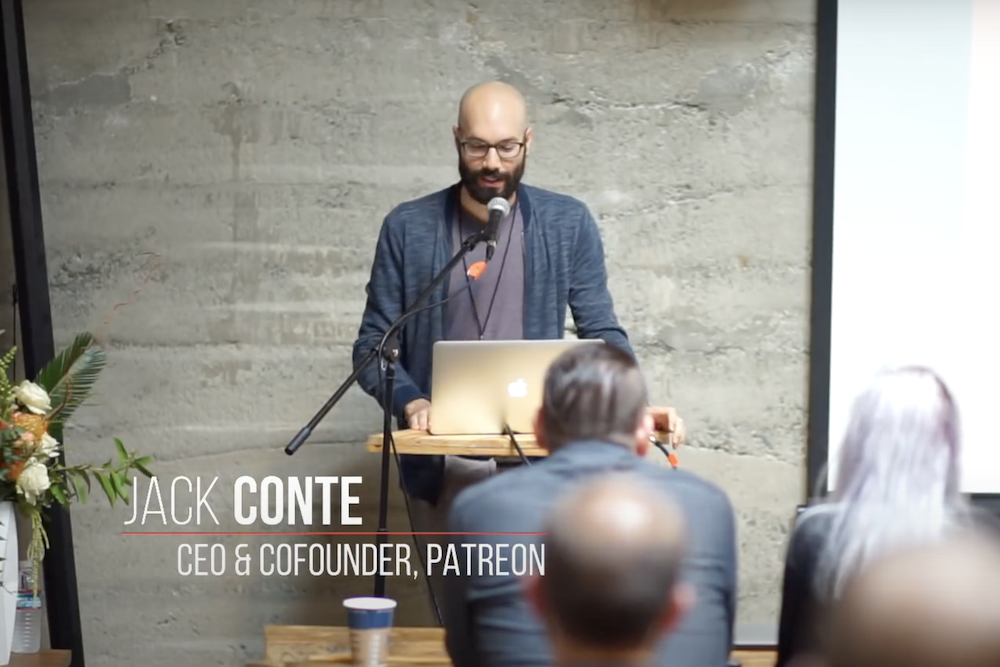This is a commentary on a presentation called ‘Work to Publish’ by Jack Conte, Patreon co-founder and CEO. It really resonated with me as I was preparing upcoming blog posts and reflecting on my writing process. I’ve left a link to the video and a transcript (as a supplement in case reading is your preferred mode of consumption) at the end of this post.
Here are 3 main takeaways from the video:
1. Finishing a piece of art doesn’t feel like ‘finishing’ at all, so we need a different word to describe it.
Conte argues that creative pursuits do not “finish” in the same way things like meals, vacations, and sports matches do. Specifically, he compares finishing sports matches to finishing songs:
Finishing sports matches:
- Sense of finality
- A countdown that hits zero
- A ‘final score’
- Relief
- Once the winner is declared, you can go about the rest of your day
- Simple emotion
- Total elation or total disappointment
- Clarity
- When the clock hits zero, it’s over
Finishing songs:
- Sense of deficiency
- Have you done enough work?
- Stress
- Is it ready? Should I make a few more tweaks?
- Complex emotions
- May conflict and lead to indecision about what to do next
- Deep uncertainty
- Is it done? How do you decide if it is?
As you can see, there is a definite endpoint to a sports match, whereas there is an odd grey area when discussing the completion of a song (or any piece of art, for that matter). Art isn’t done until you declare it so, but on what grounds do you declare it so?
Conte says that we have a “vocabulary problem” because it’s senseless to use the same term for the ending of a sports match and the “trailing fade-out of the creative process”. He argues that finishing and publishing are different beasts, and when referring to the completion of art, we should use the latter term. You don’t ‘finish’ art; you publish it.
2. Working to publish is an approach to keep in mind the whole time you are working.
Here I will shamelessly insert an excerpt of the presentation here, because if there is one section of the presentation you should pay attention to, it’s this:
Publishing is deciding to stop when you want to keep working, and it’s super painful. Some people can’t do it and some people can. People like FreddieW and Ella Fitzgerald and Zac Weener Smith and Rob Has a Podcast and Woody Allen and Hank Green and Peter Hollins and J.K. Rolling. How do they finish so many things? They don’t. But they publish them anyway. Publishing, though, is more than just a single decisive moment. It’s more than just the art of identifying the point at which additional work yields diminishing marginal returns. For me now, publishing starts the instant I start recording a new song. Publishing, I found, works best if you think of it as a style of working. It’s an attitude that persists throughout the entire creative process, from the moment you begin work to the moment you give it up to the world. Working to publish is about getting shit done. The whole time. Your whole mentality shifts when you’re working to publish. You focus on the stuff that matters and you ignore the stuff that doesn’t. Even the fun stuff, the stuff that calls out to you and begs you to enjoy 30 minutes satisfying your obsessive desire to make something perfect that only you will notice. You write the next scene, you record the next instrument, you build the next set, you shoot the next take, you colour the next frame, you design the next synth. Working to publish? It’s selfless. It’s outward focused. It’s about results and giving back and contributing to the world. Working for pleasure, on the other hand, how I used to spend most of my time working, is inward focused. It’s slow and enjoyable, but ultimately it’s about giving to oneself. It’s rooted in the ego. It’s fixing details that you—and only you—care about. It’s a luxurious self-indulgence. It’s calm and it’s a great way to unwind and relax. And it’s freaking fun as heck. And there’a time and a place for working for pleasure. But like any luxury, I try my best to use it sparingly.
People finish things because they put them out anyway, even if they aren’t perfect. Master publishers focus on what matters, not little details that only they will notice. It’s nice to indulge and get something perfect according to your standards, but at some point you may have to label your work “good enough” and call it a day if you want to get somewhere.
3. The world is made of funnels.
Quantity begets quality. It’s really that simple.
Everything is a funnel. In order for a sales team to be successful, they have to send 10,000 e-mails to get 1000 responses to find 500 people interested to get 100 phone calls to get 20 commitments to get 10 sales. This phenomenon is called a funnel, and it appears everywhere. For websites: 1,000,000 people visit the home page, 100,000 click “Learn More,” 10,000 click “Buy,” 6000 make it to the second page of the payment flow, 2000 enter their credit cards, and 1800 of those credit cards process payments without declining. The world is made of funnels.
Conte says, “Working to publish is a great strategy, because when you work to publish, you end up making a lot more stuff for the top of the funnel.”
You can’t control which of your works become successful or what you become famous for, but you can produce quantity. And with enough quantity submitted to the funnel, something is bound to stand out.
Conte talks about music in his presentation, but the same ideas can be applied to writing. It can be difficult to know when you’re done with your writing. However, if you understand that writing never truly finishes and you will have to draw the line yourself at some point, it keeps you focused on what’s important. And if you write as much as you can, there is a reasonably good chance that at least one of your pieces will attain some level of success (and though people measure success in different ways, I think this is still true).
Am I hoping that one of these blog posts goes viral? The possibility just popped into my head, and I’m not holding too tightly to this notion, but it would certainly be nice. In order for this to have even a minuscule chance of happening, I need to post consistently and frequently. Do I want to write a novel or more one day? Absolutely. But it’s not going to happen if I don’t write a ton of stories.
I encourage you to reflect on how the ideas presented here apply to your own pursuits in life.
I hope you found this post illuminating!
Here is a link to the video if you would like to watch the full presentation.
If you would like to read the presentation in an essay format, I’ve prepared a transcript which you can access here.
As always, feel free to discuss in the comments below or reach out via the contact form. I’d love to hear from you!
If you enjoyed this post, please consider subscribing to my email list by clicking the button below:


